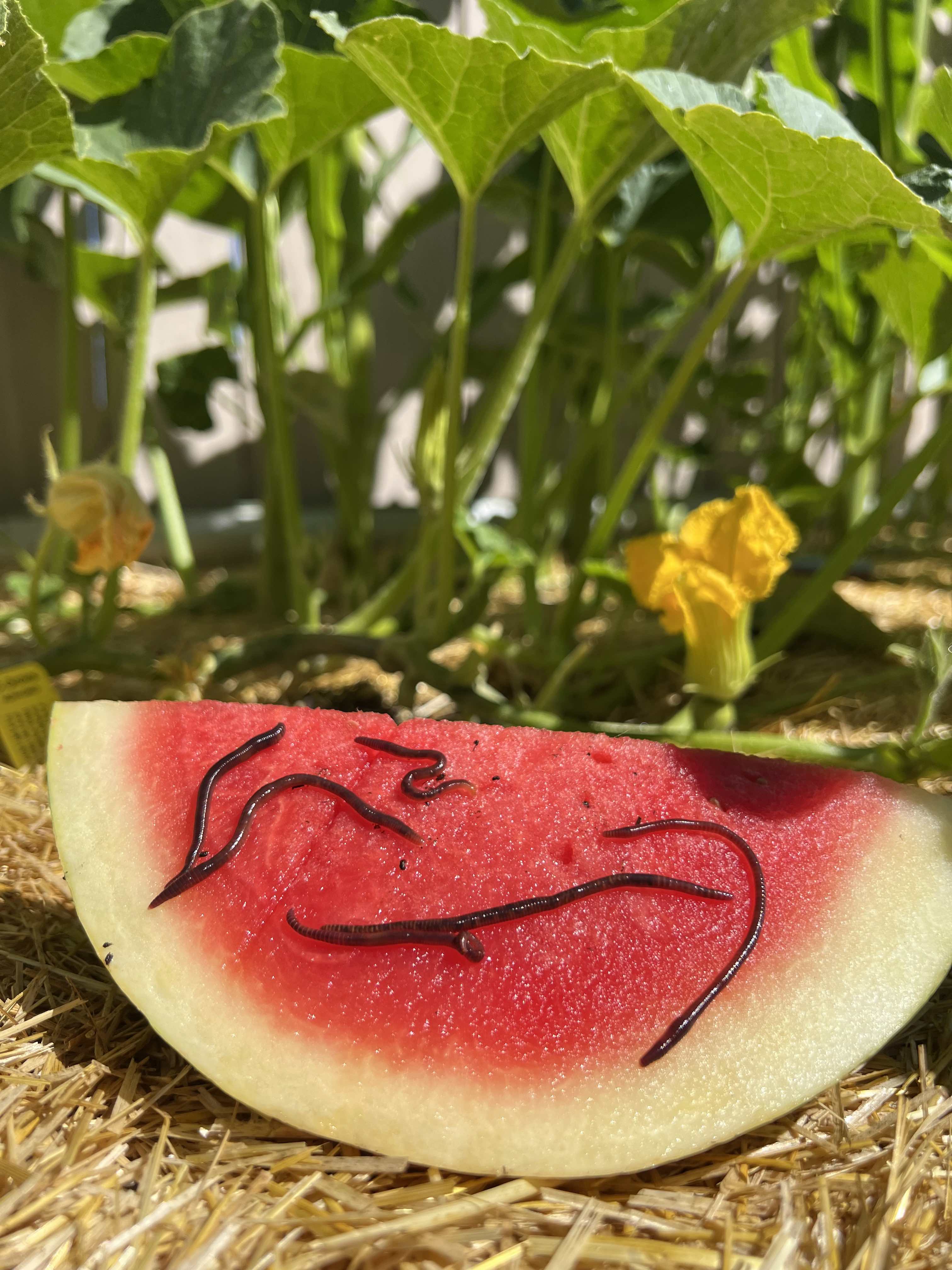Red Wiggler Worms Demystified: Opening the Tricks of Vermiculture for Greener Living and Nutrient-Rich Soil
In the realm of lasting techniques for improving dirt quality and promoting eco-conscious living, red wiggler worms play a crucial yet often forgotten function. These modest creatures possess the remarkable capability to change organic waste into nutrient-rich castings that work as a powerful natural plant food. By diving right into the globe of vermiculture, one can reveal a huge selection of benefits that prolong far past conventional composting techniques. Comprehending the details of taking care of these worms, optimizing their atmosphere, and harnessing their spreadings can lead to a greener lifestyle and much healthier soil for plants to flourish.
The Role of Red Wiggler Worms
Red Wiggler worms play a crucial function in composting systems by effectively damaging down organic issue into nutrient-rich spreadings. These starved eaters take in a range of organic products, such as kitchen area scraps, backyard waste, and paper products. As they feed, the worms' digestive processes break down the natural matter into a fine, dark, and nutrient-dense product recognized as worm castings or vermicompost.
The spreadings generated by Red Wiggler worms are extremely advantageous for soil wellness and plant growth. They are rich in essential nutrients like nitrogen, phosphorus, and potassium, which are important for sustaining healthy plant growth. In addition, worm spreadings include valuable microbes and enzymes that assist improve soil framework, boost water retention, and boost nutrient uptake by plants.
Advantages of Vermicomposting

In addition, vermicompost, the nutrient-rich final product of vermicomposting, acts as an excellent natural fertilizer and soil conditioner. It enhances dirt framework, improves dirt aeration, and enhances dirt wetness retention. These properties contribute to much healthier plants with more powerful root systems and much better resistance to conditions and insects. Vermicompost additionally improves the soil with vital nutrients like nitrogen, phosphorus, and potassium, advertising plant growth and general dirt fertility.
In addition, vermicomposting assistances lasting horticulture practices by supplying a all-natural and chemical-free option to artificial plant foods. Red Wiggler Worms. This eco-friendly method not just enriches the soil yet additionally helps in reducing reliance on hazardous chemicals, advertising a greener and much more sustainable means of gardening
Setting Up a Worm Container
When developing a worm container for vermicomposting, appropriate setup is critical to make sure the success of the composting procedure. The first step in establishing up a worm bin is selecting an ideal container.
After adding the bed linens, introduce the red wiggler worms to the container. The worms need to after that be given with food scraps such as fruit and veggie peels, coffee premises, and eggshells.
On a regular basis monitor the dampness levels and temperature in the worm container to guarantee optimal conditions for the worms. With proper setup and maintenance, the worm bin will efficiently convert natural waste into nutrient-rich compost for your plants and garden.
Collecting Worm Spreadings
To efficiently gather nutrient-rich worm spreadings from your vermicomposting system, a systematic harvesting approach is vital. When it comes time to collect the worm spreadings, there are a couple of crucial steps to comply with to make sure an effective procedure. First of all, stop including fresh food scraps to one side of the worm container for a number of weeks before harvesting. This encourages the worms to migrate sideways with fresh bed linens and food, making it simpler to dig the spreadings from the opposite side.

Troubleshooting Common Issues
Determining and dealing with typical difficulties that may occur throughout the vermicomposting procedure is vital for maintaining a effective and healthy and balanced worm bin. Adding excess food scraps can lead to a build-up of dampness and level of acidity in the worm container, potentially harming the worms. An additional issue is unpleasant smells emanating from the worm bin.
Furthermore, if the worm populace is decreasing or the worms show up harmful, maybe because of ecological stress factors such as extreme temperature levels or pH degrees. Keeping an eye on these elements and making necessary modifications is crucial for the well-being of the worms. By repairing these typical issues quickly, vermicomposters can make sure a effective and smooth vermicomposting process while preserving a thriving worm population.

Final Thought
To conclude, red wiggler worms play a critical function in vermiculture by damaging down raw material right into nutrient-rich dirt. The benefits of vermiculture include greener living and boosted soil top quality. Establishing a worm container is necessary for effective vermiculture, and collecting worm castings offers beneficial compost for horticulture. By recognizing and troubleshooting common problems, people can open the secrets of vermiculture for lasting living and much healthier dirt.
As they feed, the worms' digestive procedures damage down the natural issue into a fine, dark, and nutrient-dense material recognized as worm spreadings or vermicompost.
The spreadings produced by Red Wiggler worms are extremely beneficial for soil wellness and plant development. Adding excess food scraps can lead to an accumulation of dampness and level of acidity in the worm container, possibly hurting the worms.In addition, if the worm populace is decreasing or the worms show up harmful, it could be due to ecological basics stressors such as extreme temperature levels or pH degrees. Setting up a worm bin is vital for successful vermiculture, and harvesting worm castings offers read the full info here beneficial garden compost for horticulture.